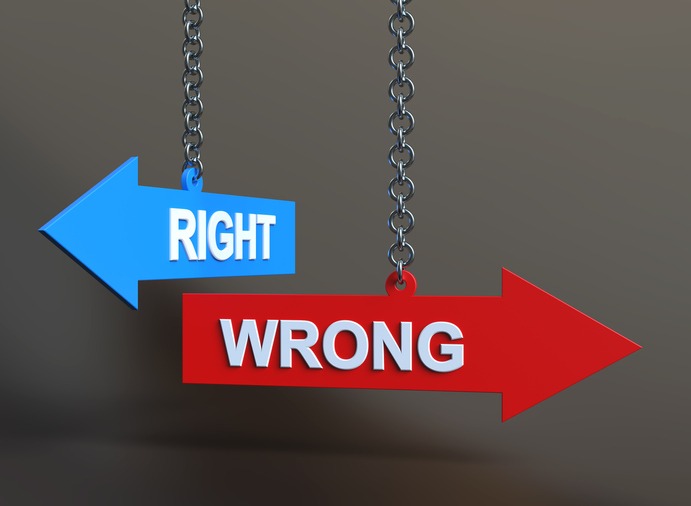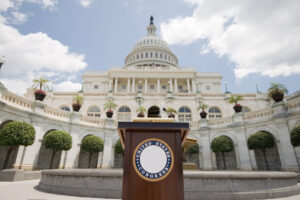Is your pitching unethical?
PR pros weighed in online on whether poor media relations practices such as emailing irrelevant ideas and adding reporters to mailing lists flout the laws of morality.

Mass mailing your pitch to every journalist’s email you can get your hands on is wrongheaded—even foolish. But is it unethical?
A recent report from The Plank Center for Public Relations shared that 62% of comms pros reported facing an ethical challenge in the last year. However, what exactly that ethical dilemma might be was ill-defined.
Proper disclosure of facts to the public? Spinning bad news beyond the boundaries of fact and reason? Trying to keep internal and external stakeholder safe during a pandemic in a deeply divisive election year?
Sure, those are dilemmas. But some PR pros seem ready to extend their ethics a little farther than that.
https://twitter.com/JuliaAngelenPR/status/1414731670213709825
Others are more inclined to see ethics as a matter of working on projects that feel…ethical.
I always think of "ethical challenge" as being asked to work on something you don't feel is, well, ethical. Or communicate a message that you view as unethical. So this may not be so far from what I might imagine.
— Michelle Garrett | B2B PR Consultant/Writer (@PRisUs) July 12, 2021
But many are ready to see ethical issues in the media relations field, both when it comes to managing clients as well as protecting relationships with reporters.
I think I have issues w/telling the client something won't get covered & they want me to pitch it anyway (again, against my advice). My "ethical" issue is w/sending it to the press knowing it won't get covered. I'm wasting their time, my time & my reputation. If I'm to answer…
— JBLHComms (@JBLHComms) July 13, 2021
…my own un-asked ?, I guess it would be, do I just tell the client I sent the pitch w/o really sending it, so as not to damage my relationship w/the press, the client's relationship w/the press & not waste the press' time?! That is another ethical issue in & of itself!!!!
— JBLHComms (@JBLHComms) July 13, 2021
Where the rubber meets the road in this debate is the differentiation between personal and professional ethics. While one may set a personal standard, whether the whole industry accedes to your druthers is the point.
Here’s how Glassdoor’s Blog defines the difference between personal principle and professional regulation:
There are a few key differences between personal and professional ethics. The primary difference is that a personal set of ethics refers to an individual’s beliefs and values in any area of life, while professional ethics refers to a person’s values within the workplace.
An example of a personal code of ethics is as follows: A person chooses to return a wallet that they found on the ground to lost and found rather than keep it for themselves due to their personal ethic of honesty. In the workplace, an example of professional ethics would be the same person returns a wallet to their coworker due to a code of conduct rule of no stealing.
Some people differentiate personal and professional ethics by viewing a personal ethical system as a personal moral code or a person’s conscience, while professional ethics are viewed as a set code of conduct that must be adhered to in the workplace.
Professional bodies have attempted to set global, professional ethics standards for the PR industry. The Public Relations Society of America, PRSA, offers these principles:
- We serve the public interest by acting as responsible advocates for those we represent. We provide a voice in the marketplace of ideas, facts, and viewpoints to aid informed public debate.
- We adhere to the highest standards of accuracy and truth in advancing the interests of those we represent and in communicating with the public.
- We acquire and responsibly use specialized knowledge and experience. We advance the profession through continued professional development, research, and education. We build mutual understanding, credibility, and relationships among a wide array of institutions and audiences.
- We provide objective counsel to those we represent. We are accountable for our actions.
- We are faithful to those we represent, while honoring our obligation to serve the public interest.
- We deal fairly with clients, employers, competitors, peers, vendors, the media, and the general public. We respect all opinions and support the right of free expression.
These rules might not spell out instructions to avoid the less scrupulous tactics of some in the media relations game, but they do imply a commitment to integrity. That’s enough of a clarion call for some to label email spam as an immoral act:
https://twitter.com/JuliaAngelenPR/status/1415005175664693250
Yet, that doesn’t mean promising a client you can deliver something that is out of your reach. That, too, fails the morality test.
I do, too, but if a client is paying u to do a job…it's unethical to lie to ur client, too.
— JBLHComms (@JBLHComms) July 13, 2021
And even if you don’t think it’s an unethical move, many PR pros would just label such tomfoolery as “dumb.”
How is that unethical? Sure, it’s a dumb move, but it’s not unethical.
I don’t view that in terms of ethics. I just think it’s an ill-advised #mediarelations tactic, and yet, thousands of #PR pros continue to do it and piss off reporters. Why?
— Caddy Marketing and Communications, Inc. (@CaddyMarketing) July 13, 2021
PR and media relations pros would do well to seek both morality and intelligence—some of the very best ingredients for success in a constantly changing marketplace.







